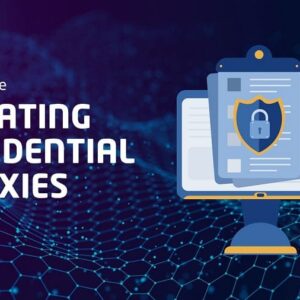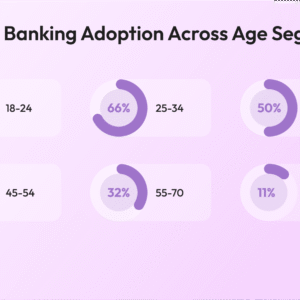
Most PayPal scams need little to no technical expertise, you don’t need to be a rocket scientist to pull one off. The likelihood is that the fraudsters will try to take advantage of your ignorance about PayPal. For instance, a member who just signed up might not be aware that the platform only sends emails with a greeting and the user’s first and last name or business name.
By far, the most popular technique for stealing login credentials is email spoofing. Scammers have been known to hack into accounts to steal money or use them as a “weapon,” however these incidents are rare. The fact is that when faced with informed customers, PayPal scammers are helpless.
Therefore, make sure to read PayPal’s buyer-seller protection policy before making any transactions. In this manner, it will be simpler to determine whether you are trustworthy or going to be dumped. Send an email to PayPal to alert the platform if you think one of the emails you get from PayPal is a hoax. Don’t forget to include the address and a copy of the email’s content.

How does PayPal respond to these PayPal scams?
Experts can’t believe PayPal is providing the means for scammers to execute this scheme. However, as the PayPal employee clarified, any PayPal user can invoice another user. These users reportedly have the freedom to include whatever they like in the invoice, including threatening language and a phony phone number that connects to a thief who will attempt to steal your password.
How was this possible using PayPal? Well, PayPal didn’t give it much thought, in experts’ opinion. A $20 billion firm ought to be able to try its best to keep up with crooks. It hasn’t, though.
PayPal needs to keep a closer eye on its invoicing. By Regulation, PayPal is liable for any fraudulent money transfers that take place while under its control, regardless of the terms and circumstances.
How to safeguard your account from PayPal scams?
Everyone will always have their hands deep in their pockets whenever there is money involved. Understanding how to defend your account against these PayPal scams efforts is crucial.
As always, it’s not a good idea to reveal your credentials. That is insufficient. So, here are a few suggestions on how to increase the security of your account so that you can enjoy using PayPal.
Avoid clicking on scam emails or dubious links:
The majority of the time, scammers will attempt to obtain your credentials by deceiving you into submitting fake forms. Consider the scenario where a scammer attempts to open a PayPal account on your behalf; both the email and the “PayPal” form appear to be genuine. To prevent such information from getting into the wrong hands, simply disregard any solicitations you receive via email to complete forms.
It might be preferable to visit PayPal’s official page and register an account there if you want to discuss turkey with the person who initially contacted you. Email your buyer as soon as the account is operational. They might give it some thought before emailing you again.
Anything that appears too useful to be genuine is probably a scam:
Money does not grow on trees. And people don’t merely give away money because they had a generous feeling when they got up. The following time you receive an email and find instructions to “buy now,” “hurry up!” or “assert your complimentary funds here,” close it.
Reject requests for deliveries to alternative addresses:
It’s probably a PayPal scam if your buyer requests that you deliver the goods to a different address than the one listed on the transaction form. You can just refuse the request and let the interested party know that you won’t change the shipment address because no one is holding a pistol to your head. This also holds when the ‘buyer’ tells you that the hauling will be handled by his own shipping business.
If something doesn’t feel right, always provide a complete refund:
If someone contacts you via email alleging an overcharge, you should log into your PayPal account as soon as you can and issue a full refund. Continue on the platform the entire way. Why? since it contains a built-in failsafe that shield users from PayPal scams. It would be a good idea to notify PayPal about the occurrence while you’re at it. Now, under “decline reason,” kindly request that your buyer send the proper amount if you think that the error is legitimate.
Observe your PayPal account:
Examining the history of your transactions is usually a smart idea. You should report anything suspicious to PayPal as soon as you can, such as an unauthorized withdrawal or an order. Sure, in most circumstances it might just be a false alarm, but when it comes to PayPal scams, you can never be too sure.
But keep in mind that the alleged overpayment scheme can be executed via a compromised PayPal account. Take the required actions to limit the harm if you have any reason to believe that your account has been compromised.
Utilize antiphishing and antimalware applications:
Antivirus software alone won’t protect you from online fraud. Your computer, tablet, or smartphone will undoubtedly be virus-free, but this kind of software does not protect against all internet dangers, such as PayPal scams. Installing an all-in-one solution that will assist shield your computer from form-phishing efforts is therefore the greatest thing you can do. The next time you get an email, if the database of the software is current, you will be alerted to its possibly harmful content.
As often as you can, employ the “signature confirmation”:
“Signature confirmation” is a highly useful delivery function offered by PayPal. In other words, once you sign your name with you, the package can only be marked as “delivered.” This is a wise move if you want to prevent PayPal fraud, especially if you want to send or order expensive things.
Never divulge your PayPal login information:
Although it might seem obvious, sometimes what happens in Vegas doesn’t stay in Vegas, if you catch my meaning. Now, if you want to rest easier knowing that your PayPal scams are still in your account, don’t give out your login information to anyone, not even close relatives or friends.
Conclusion:
You’re probably already familiar with PayPal if you run a small business or sell products online. Even though PayPal is a practical tool for collecting payments and interacts readily with other beneficial services, it also draws con artists who attempt to take advantage of unwary consumers. You can prevent being a victim by being aware of how con artists operate and comprehending the many strategies they employ to try to take advantage of sellers.
Author Profile
- I am the owner of the blog readree.com. My love for technology began at a young age, and I have been exploring every nook and cranny of it for the past eight years. In that time, I have learned an immense amount about the internet world, technology, Smartphones, Computers, Funny Tricks, and how to use the internet to solve common problems faced by people in their day-to-day lives. Through this blog, I aim to share all that I have learned with my readers so that they can benefit from it too. Connect with me : Sabinbaniya2002@gmail.com
Latest entries
 ArticleOctober 23, 2025How to Use Rotating Residential Proxies
ArticleOctober 23, 2025How to Use Rotating Residential Proxies ArticleOctober 19, 2025Why You Should Use Geo-Targeted Proxies for Web Scraping
ArticleOctober 19, 2025Why You Should Use Geo-Targeted Proxies for Web Scraping SoftwareOctober 15, 2025The Importance of Cyber Security in a Digitally Connected World
SoftwareOctober 15, 2025The Importance of Cyber Security in a Digitally Connected World BlogOctober 8, 2025The Most Recent Trends in Generative AI in the Banking Industry
BlogOctober 8, 2025The Most Recent Trends in Generative AI in the Banking Industry